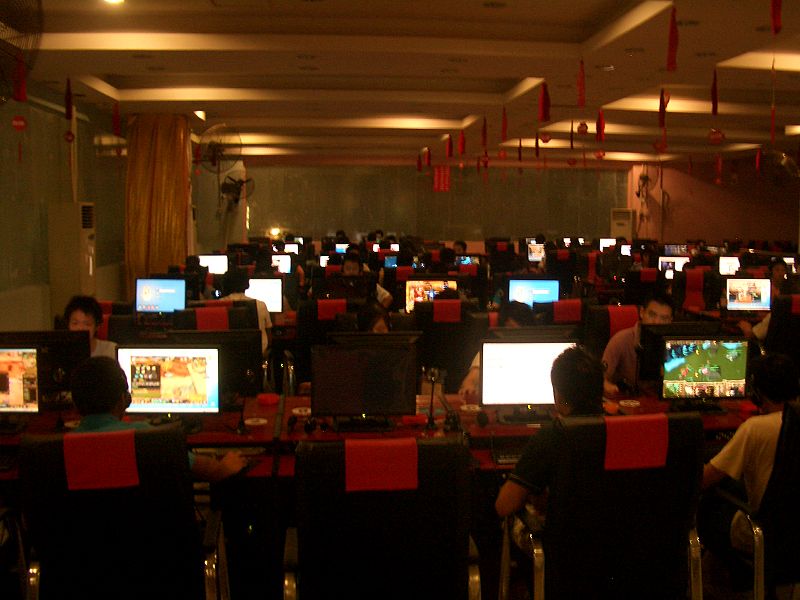
July 16, 2014, by Tony Hong
E’gao: Online parody as political commentary
By Gareth Shaw,
PhD Candidate in Contemporary Chinese Studies,
The University of Nottingham, UK.
China’s regulatory environment has spawned a culture of online jokes and entertainment known as 恶搞 (e’gao), which often spoof political activity and the restrictions on freedom of speech in a manner which offers civil resistance to online censorship without exceeding the boundaries of acceptable personal expression. Parody as a form of comedic art has been in existence for many centuries, and many cultures use parody as a way of venting frustration and voicing dissatisfaction. Parody in Chinese culture is particularly significant due to the strict regulation of political expression that exists under the leadership of the CCP, whereby public challenges to political authority are not tolerated. Therefore, parody can be seen as an important indicator of social tensions and political dissatisfaction.
E’gao is most commonly translated into English as “spoof”, and refers to internet-based messages or media containing elements of parody; however, the Chinese characters literally translate as ‘evil’ and ‘joking’, and therefore carry with them a stronger sense of subversion and wrong-doing than their English counterpart. Many attempts have been made to define e’gao within the cultural specificity of China’s cyberspace and the definitions vary depending on political leaning. China Daily defines e’gao as “a new multimedia expression that makes fun of original works, often with malicious intent”. Another state-owned newspaper, the Guangming Daily, defines e’gao as “a popular online strategy, in the form of language, picture and animation, which comically subverts and deconstructs the so-called normal”. The concept is believed to have its origins in the Japanese term 糞 (kuso, literally ‘excrement’) a form of cultural entertainment which has spread throughout the Asian internet community, primarily via the Japanese computer games industry’s influence in Taiwan, and from there into Mainland China. Over the past few years, several instances of the e’gao phenomenon have found their way into international news reports and Sino-focused academic discussion. The importance of these cases has been debated in terms of their socio-political significance. Offering veiled criticism of political practices that have not been tolerated in other forms of state-controlled media, e’gao tests the boundaries between China’s internet-censoring bodies and the country’s 618 million netizens.
An icon of popular parody that has attracted the attention of the international media over the past few years is the so-called ‘Grass Mud Horse’ (草泥马) phenomenon. This cyber-meme began circulating in the Chinese blogosphere in 2009 as part of an entry created on the Chinese online user-generated encyclopaedia Baidu Baike (百度百科) entitled百度十大神獸 (Baidu’s Ten Mythical Beasts). The humour relies on the numerous homophones and word similarities that are a feature of the Chinese language, in this instance, stemming from the fact that ‘Grass Mud Horse’ in standard Mandarin sounds phonetically similar to a profane expression. The creation of this Internet meme came with an elaborate back-story and associated characters, all of which allude to politically charged concepts through the use of homophonous language. The characters have remained a popular form of low-level protest against online censorship. Five years after the emergence of the phenomenon, a search of the term草泥马on Baidu, one of China’s most popular Internet search engines, will still return over 12 million hits. Li Hongmei argues that the mythical beasts phenomena are demonstrative of the ingenuity of Chinese netizens in bypassing the Chinese censorship machine. Word filters can easily be deceived through the use of symbols, or simply by swapping one character or letter for another. By creating forms of resistance based on benign, commonly occurring words, it makes it increasingly difficult for Internet censors to filter out such content.
It is clear that e’gao in Chinese culture performs two distinct functions. Firstly, it is a form of entertainment, albeit one that has attracted criticism from some sources for its puerile nature, and its perceived role in the ‘dumbing-down’ of contemporary Chinese culture. Secondly, it serves as a release valve for public frustrations. After years of propaganda, many of China’s citizens have grown weary of (and hardened to) the official rhetoric. E’gao thus allows netizens to unite through humour, albeit within a controlled environment, thereby “satirising those who possess the power to define the parameters of appropriate forms of speech”. Although instances of e’gao may be specific in nature and fleeting in duration, the cumulative effect of their power to captivate China’s online society should not be undervalued.
No comments yet, fill out a comment to be the first

Leave a Reply